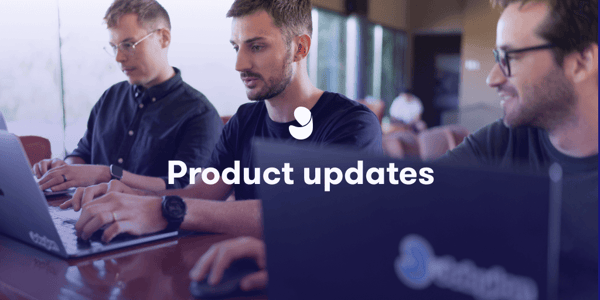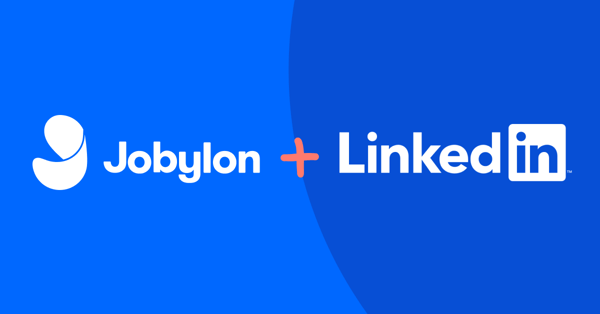In recent years, artificial intelligence (AI) has undeniably made its mark, leaving an imprint on the recruitment landscape. According to a survey by Tidio, 85% of recruiters today acknowledge the value of AI as a transformative technology poised to reshape various aspects of the hiring process. AI presents numerous advantages, from automating repetitive tasks to streamlining candidate assessments. However, a fundamental question arises when it comes to integrating AI into our workflows: How can AI's capabilities be utilised effectively without sacrificing the human-centricity that recruitment is all about.
In this article, we'll walk you through four key AI-tools that can supercharge your recruitment strategies and explore the considerations you must keep in mind before integrating them.

1. ChatGPT
ChatGPT is the gift that keeps on giving to recruiters worldwide. From writing job descriptions to drafting a comprehensive talent acquisition strategy, ChatGPT is your partner in crime. Even so, in one survey by Aspire, 45% of 574 respondents believe that ChatGPT will help them perform their job better.
Common tasks such as managing communication channels and candidate screening can be time-consuming and resource-draining. Fortunately, ChatGPT's capabilities can significantly boost recruiters' efficiency, allowing them to redirect their efforts towards more high-impact and human-centric responsibilities.
Considerations before using ChatGPT:
Before diving into using ChatGPT, consider a few important things. While ChatGPT can be a valuable companion, it's crucial to remember that it's a tool, not a replacement for human recruiters. Make sure to maintain the human touch in your hiring process. Secondly, bear in mind that the content generated by ChatGPT isn’t always objective. Regularly review and edit its output to maintain consistency. Lastly, ensure data privacy and security when sharing candidate information with ChatGPT.
2. Predictive analytics
Predictive analytics in recruitment is the use of data analysis and machine learning to make data-driven predictions about candidate success and potential job fit. It involves using data and computer algorithms to make educated guesses about which job candidates are most likely to succeed in. By looking at factors such as a person's past experiences, skills, and other data, predictive analytics helps employers choose the best candidates for their job openings, making the hiring process more efficient and effective. It's like having a smart assistant that helps you pick the right person for the job.
Considerations before using Predictive analytics:
Predictive analytics is like having a smart assistant, but there are factors to consider. You'll need quality data for accurate predictions, so ensure your data is up-to-date and relevant. It's also vital to monitor and refine your predictive models regularly as your hiring needs evolve. Keep in mind that while predictive analytics can provide insights, it shouldn't replace human judgement entirely. Use it as a tool to support, not dictate, your hiring decisions.
3. AI-powered talent sourcing tools
AI-powered talent sourcing tools are technology platforms that use artificial intelligence and machine learning to assist recruiters in identifying and attracting top candidates for job openings. These tools automate and streamline the sourcing process by scanning and analysing resumes to extract relevant information about candidates' skills, experience, and qualifications. They can also match candidate profiles to job requirements, helping recruiters identify the most suitable candidates quickly.
These tools aim to reduce manual effort, improve the efficiency of the talent acquisition process, and enhance the quality of candidate matches, ultimately saving recruiters time and helping organisations find the best-fit talent.
Considerations before using AI-powered talent sourcing tools:
AI-powered talent sourcing tools are great, but there’s a few things to remember. Make sure you're sourcing candidates ethically and that your sourcing methods comply with data privacy regulations. Also, these tools are most effective when tailored to your specific hiring needs, so take time to configure them for optimal results. And always remember that while they can automate tasks, they shouldn't replace your active engagement with candidates during the recruitment process.
4. AI-driven skills assessment platforms
AI-driven skills assessment platforms use artificial intelligence to evaluate candidates' skills efficiently and objectively. These include automated testing, adaptive question difficulty, and data-driven insights. Using these platforms is a game-changer to save time, reduce bias, cut costs, and improve job-candidate matching. In summary, they enhance hiring accuracy and efficiency.
They significantly reduce the time and effort expended on assessing candidates, allowing recruiters to expedite the hiring process. Moreover, the objectivity of the assessments minimises the potential for human bias, contributing to a more fair and equitable hiring process.
Considerations before using AI-driven skills assessment platforms:
AI-driven skills assessment platforms offer many advantages, but you should be aware of some considerations. It's essential to select or develop assessments that align with the actual skills needed for the job. These platforms can save time and reduce bias, but they should be used as a complement to human judgement, not a replacement. Regularly review and update your assessment criteria to stay relevant. Finally, ensure that your assessments are accessible and fair to all candidates, regardless of background or circumstances.
Conclusion
AI is undoubtedly reshaping recruitment with great potential for efficiency and data-driven insights. However, the ethical considerations are crucial to be aware of, including guarding against biases and respecting candidates' privacy. Recruiters need to find a balance between automation and preserving the human touch, ensuring these tools actually enhance the hiring process.
"As a forward-thinking ATS provider, we take user privacy and data protection seriously. While our current offerings are designed with these priorities at the forefront, we are actively exploring the integration of AI-powered features. This strategic move is being carefully planned to align with our commitment to privacy standards and GDPR regulations. We are excited about the potential AI holds and are committed to rolling out new functionalities that not only meet but exceed the highest data protection criteria. Stay tuned for exciting updates that will enhance your experience within our platform while keeping your data safe and sound."
- Aref Abedi, CEO Jobylon
Make sure to grab a copy of our 2024 Recruitment Trend Report now to learn about AI and the six other crucial trends shaping the recruitment landscape in 2024.




